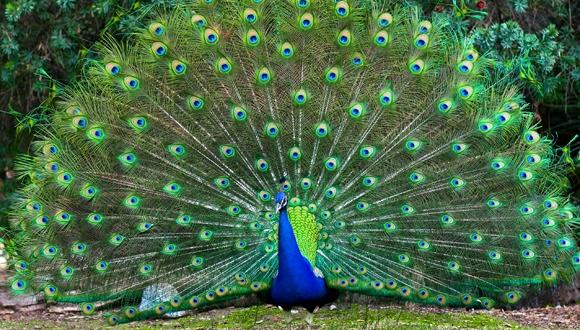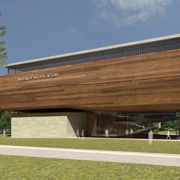Ecology Campus
Instilling a Love of Nature and the Environment in Israel
“It is a wholesome and necessary thing for us to turn again to the earth and in the contemplation of her beauties to know of wonder and humility,” wrote Rachel Carson, a biologist and conservationist whose writings are credited with advancing the global environmental movement. In the spirit of Carson’s message, Tel Aviv University continually strives to further wildlife conservation, research and education in Israel. Through its Nature Campus program, Botanical Gardens, I. Meier Segals Garden for Zoological Research and Steinhardt Museum of Natural History and Israel National Center for Biodiversity Studies, TAU studies and preserves biological diversity and promotes responsible environmental citizenship.
Nature Campus
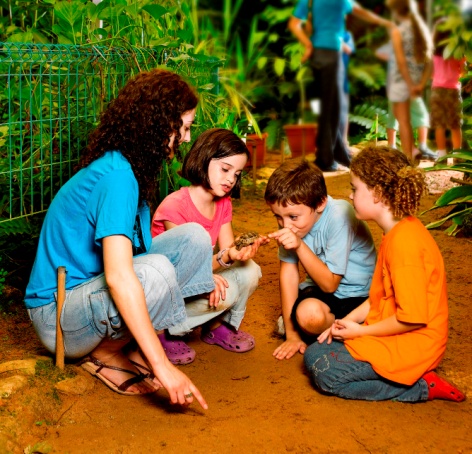 Serving over 10,000 visitors every year, Nature Campus introduces youngsters – from kindergarten through high school – to the world of science and ecology at the Tel Aviv University research zoo. For many of these kids coming from Israel’s outlying towns and disadvantaged communities, Nature Campus is their first encounter not only with nature, but with the world of higher education in general.
Serving over 10,000 visitors every year, Nature Campus introduces youngsters – from kindergarten through high school – to the world of science and ecology at the Tel Aviv University research zoo. For many of these kids coming from Israel’s outlying towns and disadvantaged communities, Nature Campus is their first encounter not only with nature, but with the world of higher education in general.
In an increasingly urbanized Israel, youngsters have fewer opportunities to be in contact with the natural world. Therefore, the impact on the young people participating in this often life-changing experience is high: they go home with an increased awareness of the importance of conserving and protecting wildlife, as well as with the knowledge that they too can attend university later on if they so desire. By expanding accessibility to the academy, to environmental education and to nature in general, Nature Campus is championing social and environmental justice in Israel.
Botanical Gardens
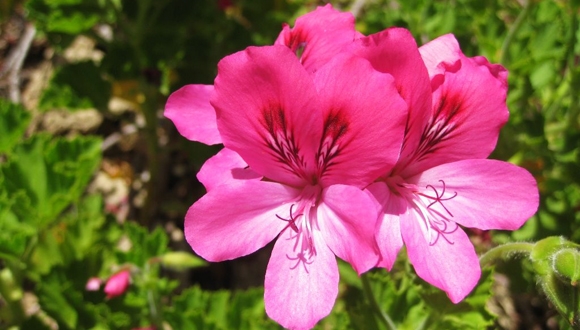 Plants and exhibits at TAU’s Botanical Gardens serve as the basis for academic instruction and research on campus, as well as a source of tranquillity, enjoyment and education. Spanning some eight acres, the Gardens feature the unique Sarah Racine Root Laboratory and the interactive Jack Benesch-Bennett Garden for the Blind.
Plants and exhibits at TAU’s Botanical Gardens serve as the basis for academic instruction and research on campus, as well as a source of tranquillity, enjoyment and education. Spanning some eight acres, the Gardens feature the unique Sarah Racine Root Laboratory and the interactive Jack Benesch-Bennett Garden for the Blind.
There are also specialized areas with displays of tropical plants, medicinal plants, cacti and succulents, and more. Visitors are able to tour the plant communities of Israel, from Mount Hermon to Eilat, and to study and enjoy a broad variety of trees, shrubs, and herbs.
In particular, the Gardens serve as the basis for a multitude of conservation and biodiversity research projects conducted by scientists at the TAU Department of Plant Sciences, George S. Wise Faculty of Life Sciences, as well as their counterparts at leading universities around the world.
I. Meier Segals Garden for Zoological Research
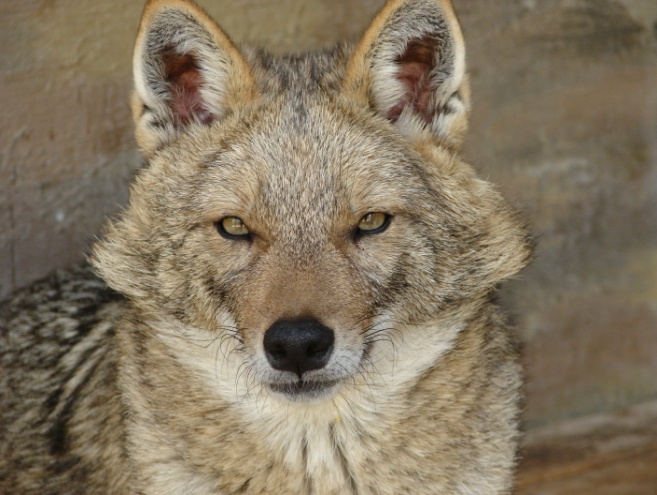 TAU’s I. Meier Segals Garden for Zoological Research is a unique wildlife research facility that also advances conservation and education issues. The zoo is the only one of its kind in the world to be devoted exclusively to research on indigenous Middle Eastern animals, with findings helping to improve the quality of life of animals both in captivity and in the wild.
TAU’s I. Meier Segals Garden for Zoological Research is a unique wildlife research facility that also advances conservation and education issues. The zoo is the only one of its kind in the world to be devoted exclusively to research on indigenous Middle Eastern animals, with findings helping to improve the quality of life of animals both in captivity and in the wild.
Some years ago, the late Prof. Heinrich Mendelssohn – founder of the zoological gardens – initiated a program to reintroduce endangered species back to nature. Birds of several threatened species were brought to the zoo in order to breed and reproduce. To date, over 100 birds have been reared and most have been successfully released back into their natural environments, where breeding has resumed.
Originally part of the Biological-Pedagogical Institute founded in 1931, the zoological garden was moved to its current location in 1981 with the support of the Canadian Friends Association (CFTAU). It was dedicated in 1995 as the I. Meier Segals Garden for Zoological Research, in honor of the CFTAU co-founder. The dedication was made possible by Professor Lawrence Bessner, himself a major patron of the zoo, former president of CFTAU and a TAU honorary doctor. The zoo’s main research building is dedicated in his name and that of his late wife Terry.
Steinhardt National Natural History Museum and Research Center
Israel’s location at the crossroads of three continents – Europe, Asia and Africa – has enabled the evolution of diverse animal and plant life unlike any other in the world. Yet, despite the country’s unique and rich biodiversity, there is no natural history museum in Israel.

It is in this context that Tel Aviv University is constructing the Steinhardt National Natural History Museum and Research Center, dedicated by former Chairman of the TAU Board of Governors Mr. Michael Steinhardt, which will form the centerpiece of the largest and most comprehensive center in Israel for biodiversity research, education and conservation. Operating under the auspices of the Israel Academy of Sciences and Humanities and supported by Yad Hanadiv (the Rothschild Foundation), the Steinhardt Museum will serve as an important resource for thousands of Israeli and international visitors and researchers each year.
An estimated five million specimens of animal and plant life make up the museum, featuring everything from deep sea Mediterranean fish to marine algae, from early human fossils to invertebrates, and from Red Sea corals to lichens. The musueum's faculty and staff have already been highly instrumental in expanding public knowledge and understanding of biodiversity and of many other facets that benefit Israeli society and the world at large.


